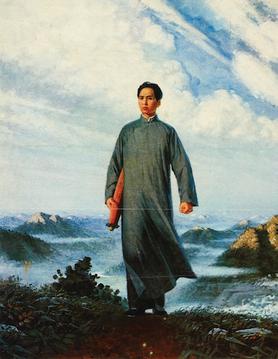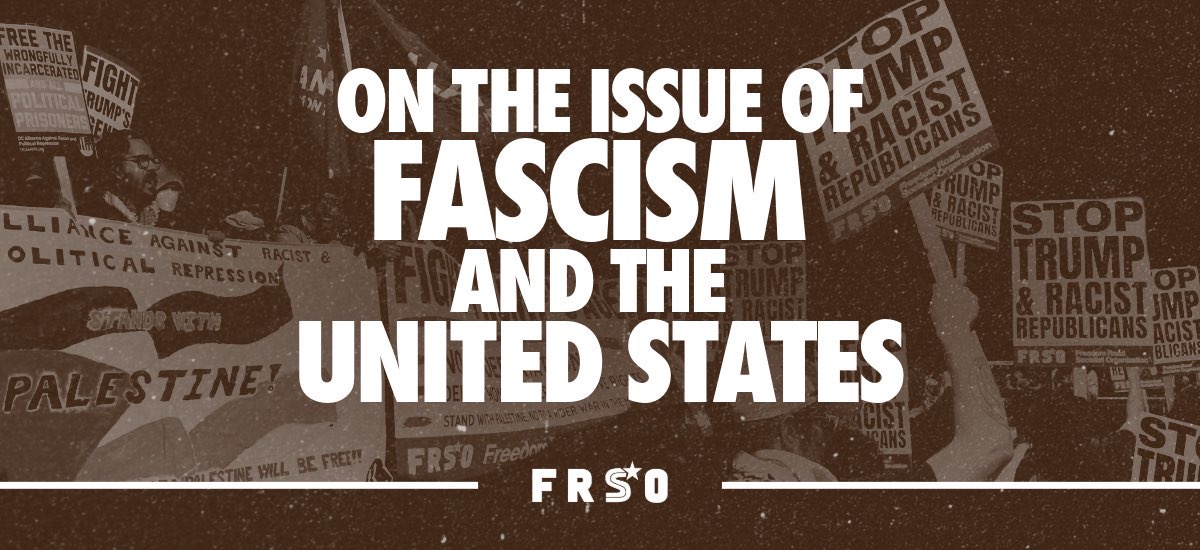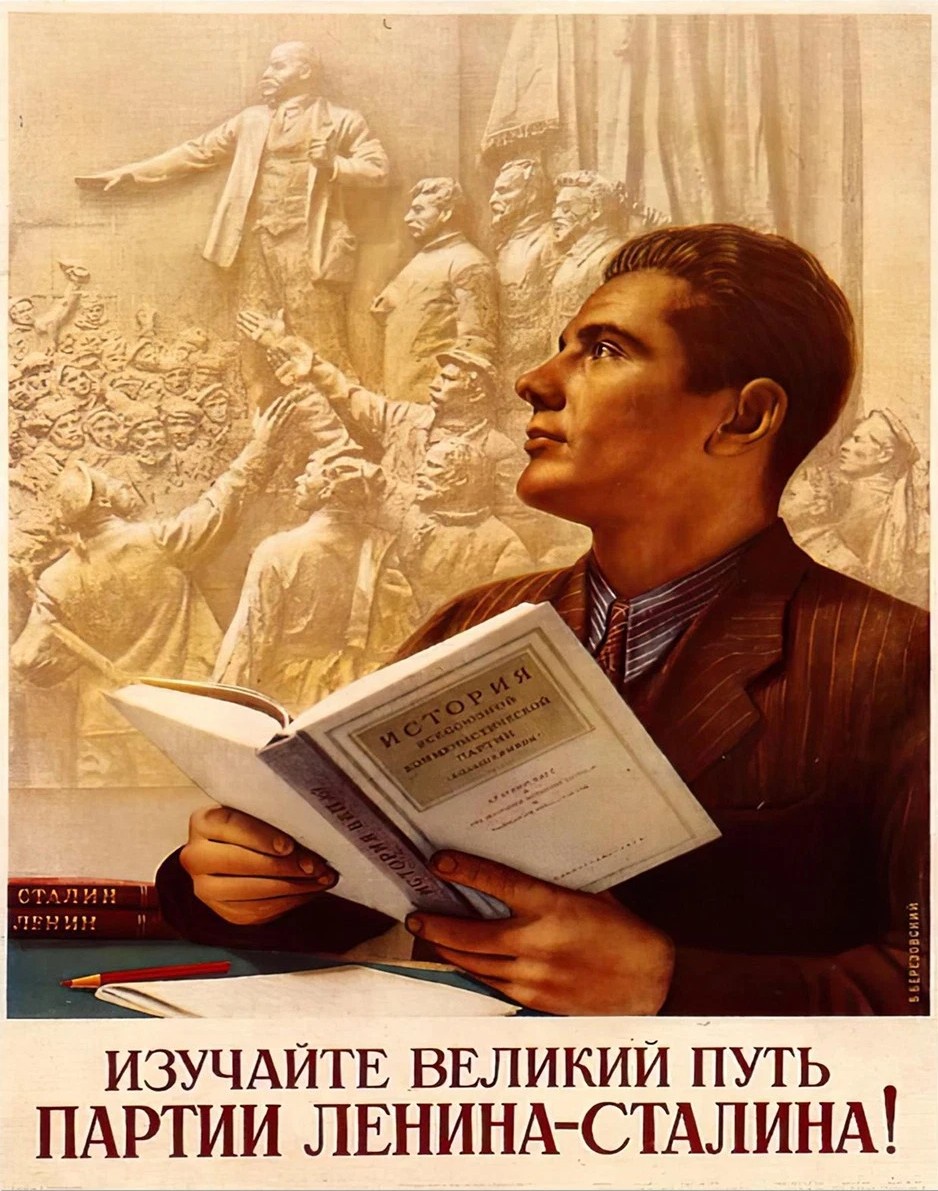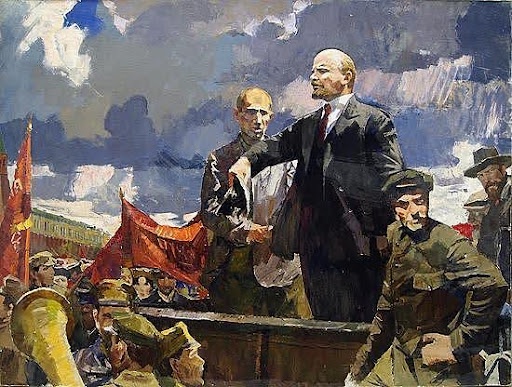For Mao’s birthday, read some of what he had to say about the U.S.

To mark the 132nd anniversary of the birth of Chinese revolutionary Mao Zedong, December 26, Fight Back News Service is circulating quotes from some of his writings on the United States and its role in the world.
“Chiang Kai-shek and his supporters, the U.S. reactionaries, are all paper tigers too. Speaking of U.S. imperialism, people seem to feel that it is terrifically strong. Chinese reactionaries are using the ‘strength’ of the United States to frighten the Chinese people. But it will be proved that the U.S. reactionaries, like all the reactionaries in history, do not have much strength. In the United States there are others who are really strong – the American people.”
— Talk with the American correspondent Anna Louise Strong, August 1946
“Apart from those who are deliberately deceiving the people or are utterly naive, no one will believe that a treaty can make U.S. imperialism lay down its butcher’s knife and suddenly become a Buddha, or even behave itself a little better.”
— Statement Opposing Aggression Against Southern Vietnam and Slaughter of Its People by the U.S. – Ngo Dinh Diem clique, August, 1963
“The United States has all along attempted to control the Congo. It used the United Nations forces to carry out every sort of evil deed there. It murdered the Congolese national hero Lumumba, it subverted the lawful Congolese government. It imposed the puppet Tshombe on the Congolese people, and dispatched mercenary troops to suppress the Congolese national liberation movement. And now, it is carrying out direct armed intervention in the Congo in collusion with Belgium and Britain. In so doing, the purpose of U.S. imperialism is not only to control the Congo, but also to enmesh the whole of Africa, particularly the newly independent African countries, in the toils of U.S. neo-colonialism once again. U.S. aggression has encountered heroic resistance from the Congolese people and aroused the indignation of the people of Africa and of the whole world.”
— Declaration of Support of the People of the Congo, December 1964
“The speedy development of the struggle of the American Negroes is a manifestation of sharpening class struggle and sharpening national struggle within the United States; it has been causing increasing anxiety among U.S. ruling circles. The Kennedy Administration is insidiously using dual tactics. On the one hand, it continues to connive at and take part in discrimination against Negroes and their persecution, and it even sends troops to suppress them. On the other hand, in the attempt to numb the fighting will of the Negro people and deceive the masses of the country, the Kennedy Administration is parading as an advocate of ‘the defense of human rights’ and ‘the protection of the civil rights of Negroes,’ calling upon the Negro people to exercise ‘restraint’ and proposing the ‘civil rights legislation’ to Congress. But more and more Negroes are seeing through these tactics of the Kennedy Administration. The fascist atrocities of the U.S. imperialists against the Negro people have exposed the true nature of so-called American democracy and freedom and revealed the inner link between the reactionary policies pursued by the U.S. Government at home and its policies of aggression abroad.”
— Statement Supporting the American Negroes in Their Just Struggle Against Racial Discrimination by U.S. Imperialism, August 8, 1963
“The Afro-American struggle is not only a struggle waged by the exploited and oppressed Black people for freedom and emancipation, it is also a new clarion call to all the exploited and oppressed people of the United States to fight against the barbarous rule of the monopoly capitalist class. It is a tremendous aid and inspiration to the struggle of the people throughout the world against U.S. imperialism and to the struggle of the Vietnamese people against U.S. imperialism. On behalf of the Chinese people, I hereby express resolute support for the just struggle of the Black people in the United States.”
— Statement by Comrade Mao Tse-tung, Chairman of the Central Committee of the Communist Party of China, in Support of the Afro-American Struggle Against Violent Repression, April 16, 1968
“The Black masses and the masses of white working people in the United States have common interests and common objectives to struggle for. Therefore, the Afro-American struggle is winning sympathy and support from increasing numbers of white working people and progressives in the United States. The struggle of the Black people in the United States is bound to merge with the American workers’ movement, and this will eventually end the criminal rule of the U.S. monopoly capitalist class.”
— Statement by Comrade Mao Tse-tung, Chairman of the Central Committee of the Communist Party of China, in Support of the Afro-American Struggle Against Violent Repression, April 16, 1968
“A new upsurge in the struggle against U.S. imperialism is now emerging throughout the world. Ever since the Second World War, U.S. imperialism and its followers have been continuously launching wars of aggression and the people in various countries have been continuously waging revolutionary wars to defeat the aggressors. The danger of a new world war still exists, and the people of all countries must get prepared. But revolution is the main trend in the world today.
“Unable to win in Vietnam and Laos, the U.S. aggressors treacherously engineered the reactionary coup d’etat by the Lon Nol Sirik Matak clique, brazenly dispatched their troops to invade Cambodia and resumed the bombing of North Vietnam, and this has aroused the furious resistance of the three Indo Chinese peoples. I warmly support the fighting spirit of Samdech Norodom Sihanouk, Head of State of Cambodia, in opposing U.S. imperialism and its lackeys. I warmly support the Joint Declaration of the Summit Conference of the Indo Chinese Peoples. I warmly support the establishment of the Royal Government of National Union under the Leadership of the National United Front of Kampuchea. Strengthening their unity, supporting each other and persevering in a protracted people’s war, the three Indo-Chinese peoples will certainly overcome all difficulties and win complete victory.
“While massacring the people in other countries, U.S. imperialism is slaughtering the white and black people in its own country. Nixon’s fascist atrocities have kindled the raging flames of the revolutionary mass movement in the United States. The Chinese people firmly support the revolutionary struggle of the American people. I am convinced that the American people who are fighting valiantly will ultimately win victory and that the fascist rule in the United States will inevitably be defeated.”
— People of the World, Unite and Defeat the U.S. Aggressors and All Their Running Dogs, May 23, 1970



















